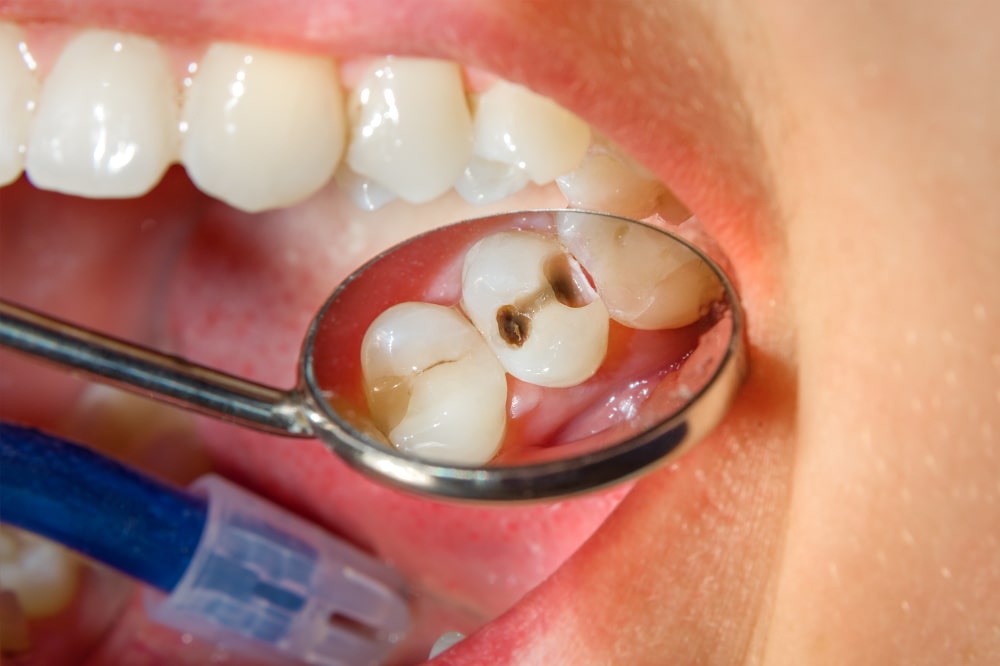The important things you need to know about the symptoms, risks and identification of oral cancer

Worldwide, more than 450,000 cases of oral cancer are found each year. When discovered early, there is an 83 percent survival rate. But when undetected and allowed to progress, that rate drops to 32 percent.
Because oral cancer is not easily detected, Lakeview Dental Centre uses the most powerful tool available today for assisting in the discovery of oral abnormalities: the VELscope Vx. Recognized by the World Health Organization, VELscope Vx is a device that painlessly and effectively detects oral abnormalities within two minutes. To date, more than 10 million examinations have been performed using the technology.
Early indicators of oral cancer
Often painless, the physical symptoms of cancer in the oral cavity, which includes the lips, inside lining of the lips and cheeks (called the buccal mucosa), teeth, gums, most of the tongue, bottom of the mouth, and the hard palate, may not be obvious. These may include the following:
- Red and/or white discolorations of the soft tissues of the mouth
- Any sore that does not heal within 14 days
- Hoarseness that lasts for a prolonged period of time
VELscope Vx uses blue light to stimulate natural fluorescence in the soft tissues of the mouth. Seeing this tissue through the device enables dental professionals to detect disease not visible to the naked eye and treat it before it develops into cancer.
Advanced indicators of oral cancer
If you experience any of these symptoms, see your dental professional immediately for an oral cancer examination:
- A feeling like something is stuck in your throat
- Numbness in the oral region
- Difficulty moving the muscles of the mouth, lips and tongue
- Difficulty swallowing
- Ear pain occurring on one side only
- A sore under a denture that does not heal
- A lump or thickening in the mouth or neck
Factors that increase the risk of oral cancer
The following controllable factors increase your risk of developing oral cancer:
- Tobacco use
- Excessive alcohol consumption
- The combined use of tobacco and alcohol
- Use of betel nut and bedis
- Excessive unprotected exposure to the sun
- A diet low in fruits and vegetables
- HPV16 viral infection
To protect yourself against oral cancer be aware of the risk factors, routinely look for symptoms, and schedule an annual examination with our dental professional, Dr. Violet Newman, who uses the VELscope Vx.
Contact us today for an appointment.





